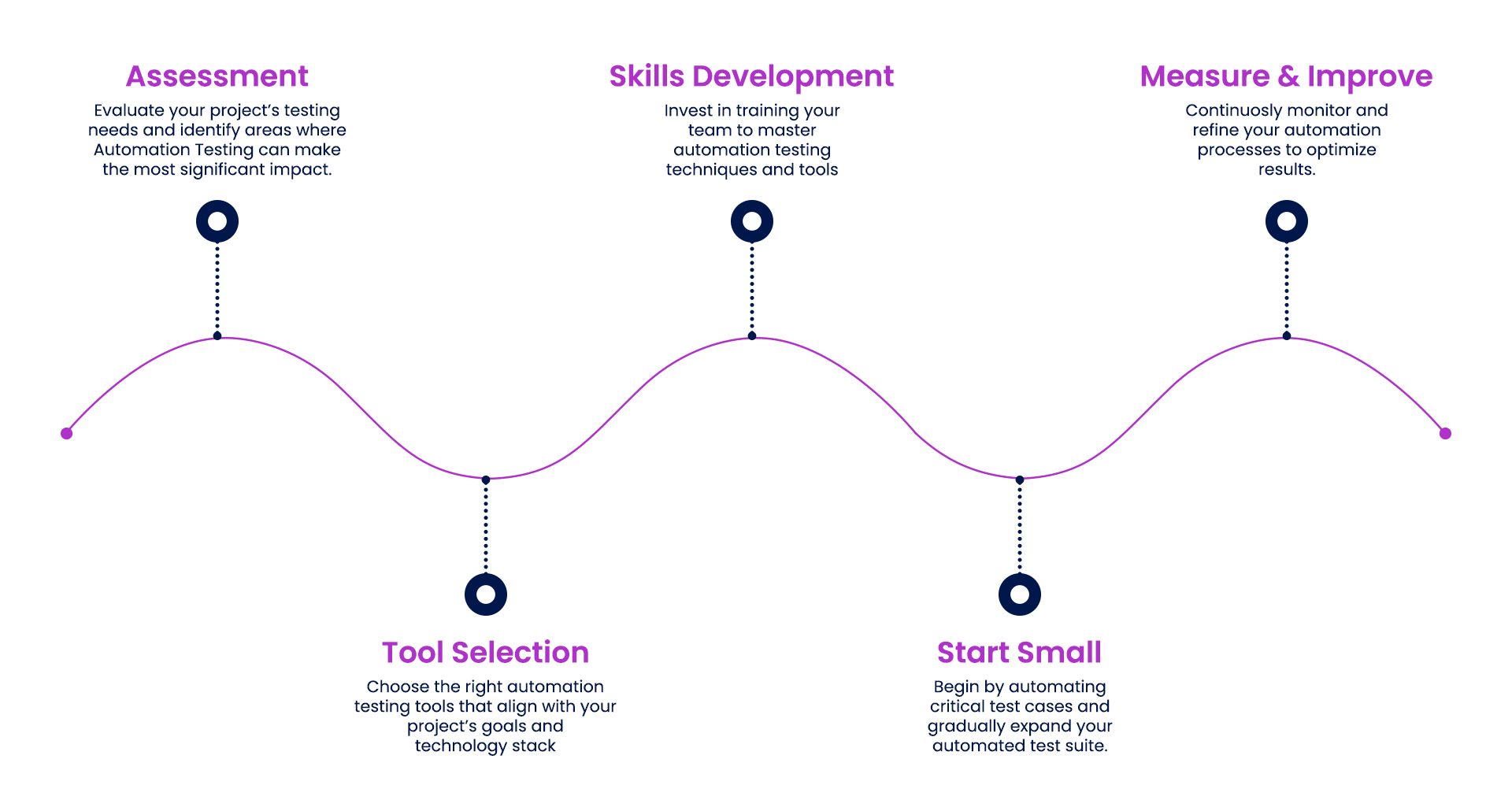The pith and marrow of automation testing
November 05, 2023
In the ever-evolving landscape of software development, automation testing stands as a tried-and-tested metric for quality assurance, propelling organizations to greater heights of efficiency and reliability. In this blog, we will embark on a journey to demystify automation testing, exploring its definition, its pivotal role in data projects, its substantial benefits, and ultimately, why you should embrace it wholeheartedly. Prepare to witness a transformation in your testing processes as we delve into the automation testing world.
What is automation testing?
Automation testing is the process of using specialized software tools and scripts to perform tests on a software application, system, or product. Unlike manual testing, which relies on human intervention, automation testing automates the execution of predefined test cases, enabling rapid and repeatable testing. It spans a spectrum of testing levels, from unit and integration testing to system and user interface testing, making it an integral part of the software development life cycle.
What are the different types of automation testing
Automation testing plays a crucial role in the fields of data analytics, AI, and machine learning by ensuring the reliability and quality of software and models. Here's how it contributes to these domains.
Data Pipeline Testing
In data analytics, automated testing can be used to verify the accuracy and consistency of data pipelines. This helps ensure that data is collected, processed, and transformed correctly before it's used for analysis.
Model Testing
In AI and machine learning, automation testing can be applied to test machine learning models. This involves evaluating models on various datasets to ensure they provide accurate predictions and perform as expected.
Regression Testing
Automated tests can be used to perform regression testing, which verifies that code changes or updates do not introduce new bugs or negatively impact existing functionality. This is particularly important in AI and ML where model performance can be affected by code modifications
Continuous Integration/Continuous Deployment (CI/CD)
Automation testing is a fundamental part of CI/CD pipelines. It ensures that as new code or models are developed, they can be automatically tested and deployed, leading to faster development cycles and more reliable software.
Performance Testing
In data analytics and AI, performance testing can be used to evaluate the speed and efficiency of algorithms and data processing. Automated tests can simulate various scenarios to assess system performance under different conditions.
Scalability Testing
For AI and ML applications, scalability testing ensures that models and algorithms can handle large datasets and workloads efficiently. Automation can help simulate and test these scenarios.
Error Detection
Automated testing can help identify errors or anomalies in data and model outputs, helping data scientists and engineers catch issues early in the development process.
Also Read : Hyper-automation - Automation beyond the bots
Benefits of automation testing
The advantages of automation testing extend far beyond efficiency gains. Here are a few benefits.
- Speed and Efficiency: Automation accelerates testing, reducing time-to-market and overall project costs
- Consistency: Automated tests perform the same actions with precision, eliminating the variability associated with manual testing
- Cost Savings: While the initial setup may require investment, automation leads to long-term cost reductions through reduced manual testing effort
- Enhanced Test Coverage: Automation allows for comprehensive testing of various scenarios, leading to better quality assurance
- Early Defect Detection: Automated tests identify defects early in the development cycle, reducing the cost and effort required for fixes
- Continuous Integration and Deployment: Automation seamlessly integrates with CI/CD pipelines, ensuring consistent and reliable releases
Now that we've uncovered the immense potential of automation testing, it's time to take action. Here's your roadmap to harness its power effectively.

Summing it up
In sum, automation testing is essential in data analytics, AI, and machine learning to maintain data quality, ensure model performance, and streamline the development and deployment processes. It helps organizations save time and resources while delivering reliable and robust solutions.
Embrace automation testing as your ally on the path to software excellence. By doing so, you'll not only bolster your project's quality but also empower your team to navigate the complexities of modern software development with confidence. Don't let your competitors outpace you – seize the potential of automation testing and propel your projects to success. The future of software testing is automated, and it's time to make it your future too.
Get in touch with us to learn more!
